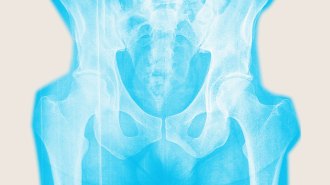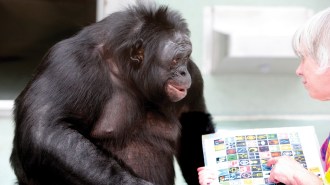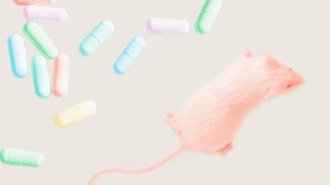Column
-
 Health & Medicine
Health & MedicineSummer is a great time to protect your hearing
Concerts, fireworks and other hallmarks of summer can hurt your hearing long-term. But there are safe ways to enjoy them.
-
 Science & Society
Science & SocietyHow attacks on evolution in classrooms have shifted over the last 100 years
Since the Scopes trial in 1925, Science News has reported on legislative attempts to undermine the teaching of evolution.
By Erin Wayman -
 Health & Medicine
Health & MedicineHow one mom is navigating vaccines’ uncertain future
With CDC upheaval, new limits on who can get some vaccines and an ongoing measles outbreak, parents like me face unfamiliar hurdles to protecting our kids.
-

The long and short of science
Editor in Chief Nancy Shute discusses the centennial of quantum mechanics’ framework, Hubble’s 35th anniversary and the legacy of Kanzi the bonobo.
By Nancy Shute -
 Health & Medicine
Health & MedicineDon’t wait until menopause to strengthen your bones
Screening for osteoporosis is recommended at age 65, but experts say women should be proactive about bone health long before that.
-
 Animals
AnimalsA ‘talking’ ape’s death signals the end of an era
Kanzi showed apes have the capacity for language, but in recent years scientists have questioned the ethics of ape experiments.
By Erin Wayman -

Seeking the anomalies that lead to discoveries
Editor in chief Nancy Shute discusses the booming online market for semaglutide, new findings on how early humans used sophisticated thinking and whether Spinosaurus could swim.
By Nancy Shute -
 Health & Medicine
Health & MedicineA messed-up body clock could be a bigger problem than lack of sleep
For a good night of sleep, consider getting your circadian rhythm back in sync with the sun. Here’s how to do it.
By Sujata Gupta -

A new era of testing nukes?
Editor in chief Nancy Shute traces the history of nuclear weapons, from the first sustained nuclear reaction in 1942 to the renewed interest in explosive tests today.
By Nancy Shute -

After the fires, LA’s long, hard road to recovery
Editor in chief Nancy Shute discusses the challenges communities face after the January wildfires in Los Angeles.
By Nancy Shute -
 Health & Medicine
Health & MedicineCan probiotics actually curb sugar cravings?
Some companies claim that taking beneficial bacteria can reduce the desire for sugar. But the evidence comes from mice, not people.
-
 Science & Society
Science & Society‘Uncertain, anxious, fearful.’ That’s the mood at 2025’s first big U.S. science meeting
Scientists are losing funding and even their jobs under the new Trump administration. Researchers at the AAAS meeting shared fears and coping strategies.